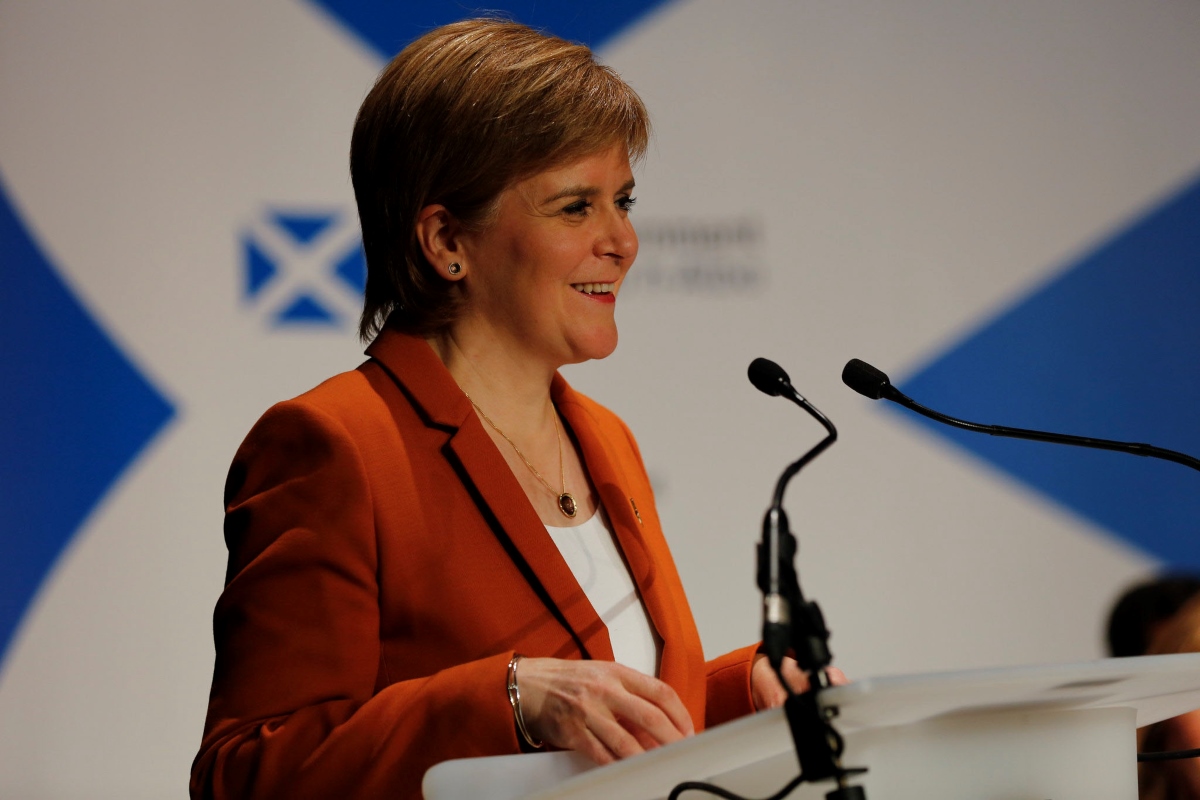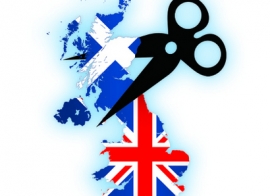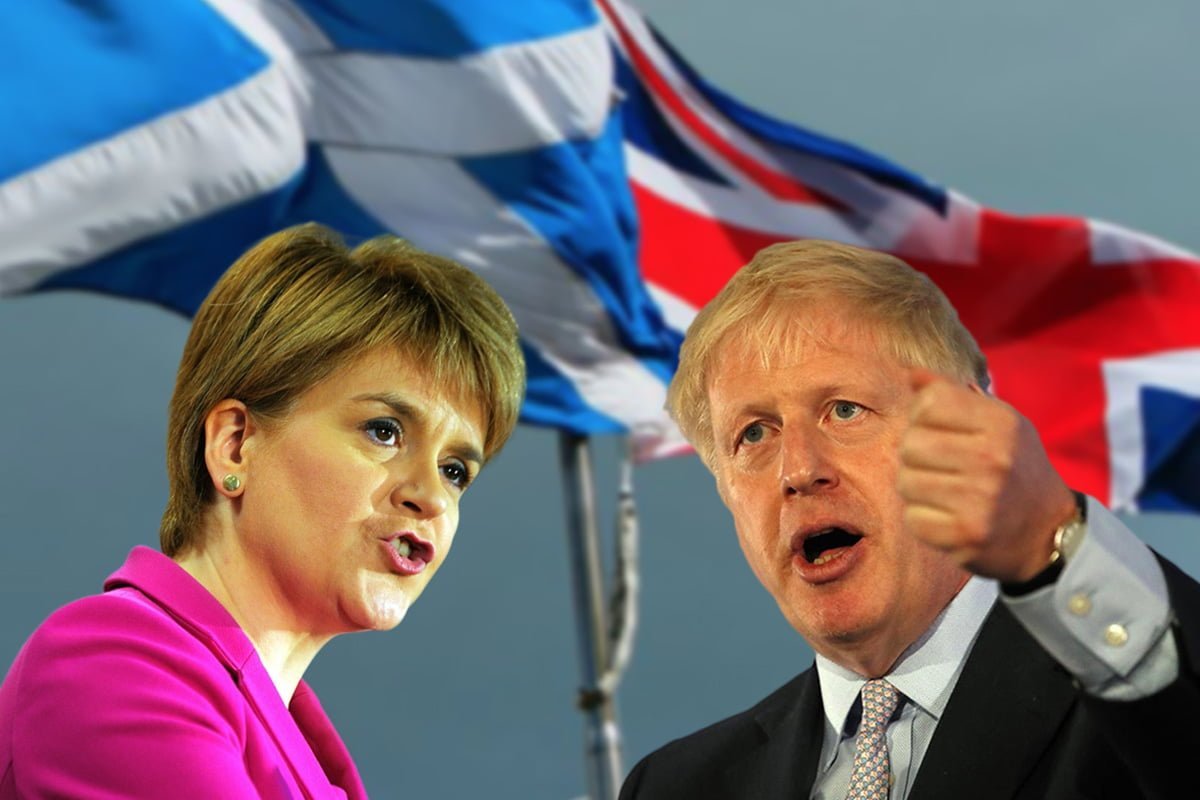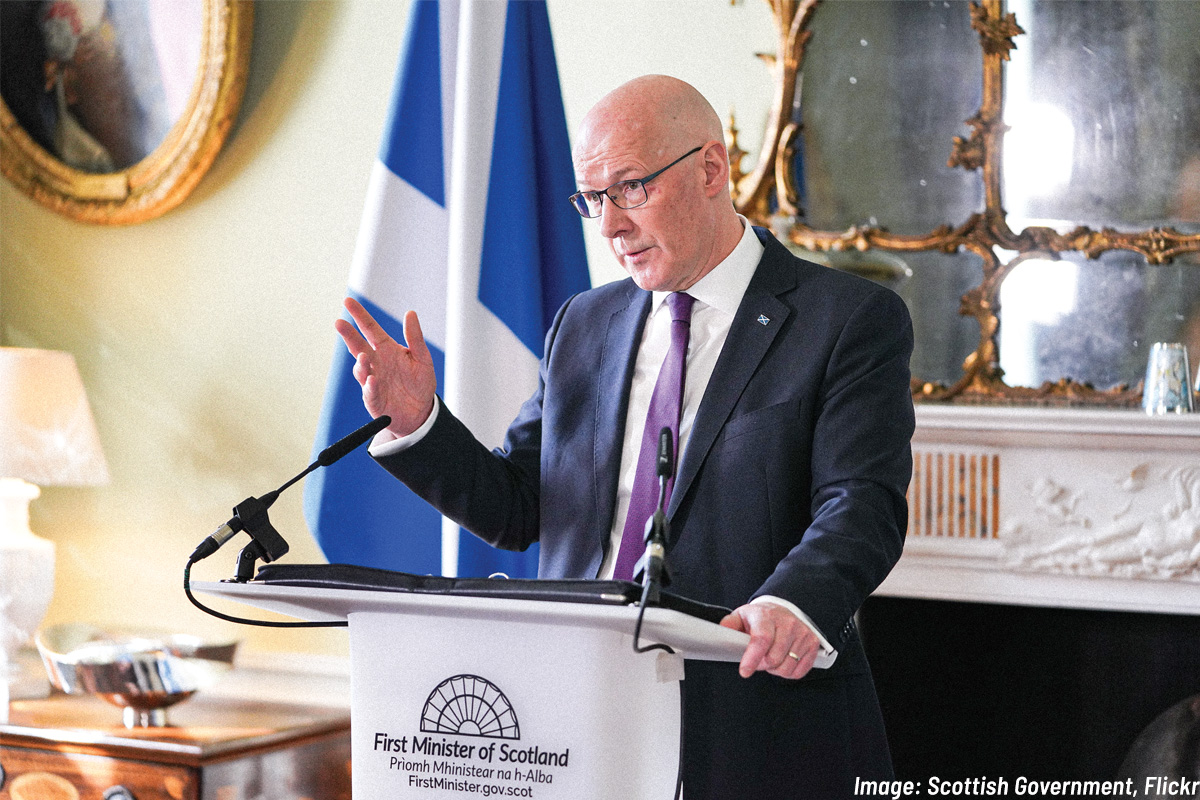Nicola Sturgeon and Boris Johnson have clashed over the response to the COVID-19 pandemic. Whilst support for the Tories is plummeting, the SNP’s popularity is rising. As a result, the national question is sharpening once again.
Scotland has charted its own contradictory path through the lockdown. Initially, the Scottish government pre-empted many of the public announcements and measures from Westminster. Holyrood appeared to be more on-the-ball, seemingly treating the pandemic with greater seriousness and urgency.
Around a week-and-a-half before Boris Johnson began the lockdown on 23 March, for example, Nicola Sturgeon suggested banning large gatherings of over 500 people. As a result, the SNP leader was denounced as alarmist by sections of the Tory press.
Now, however, the Scottish government faces criticism from the Tories for not lifting the lockdown quickly enough, in line with England. They are lambasted for breaking the ‘four nations’ approach advocated by the Prime Minister.
Establishing a separate timetable for lifting the lockdown is even condemned by some as an SNP nationalist plot. This is despite Sturgeon stating over a month ago that such a separate plan may be “logical and sensible”.
Elsewhere, Scotland’s First Minister has publicly criticised Downing Street’s decision to change public health messaging to the vague ‘Stay Alert’, preferring to stick to the clearer ‘Stay at Home’ slogan. Sturgeon may not have directly said that England’s opening-up is premature, but clearly this is the angle that the Holyrood government is taking.
Myths and scandals
 This has built up something of a myth that the Sturgeon’s government is guided by a more technocratic, ‘social democratic’ plan of action – one based purely on scientific advice rather than class interests. As a result, Sturgeon is more trusted by voters than Boris Johnson.
This has built up something of a myth that the Sturgeon’s government is guided by a more technocratic, ‘social democratic’ plan of action – one based purely on scientific advice rather than class interests. As a result, Sturgeon is more trusted by voters than Boris Johnson.
However, it was Nicola Sturgeon and the Scottish government who, in mid-April, criticised the Westminster government for not publishing a detailed plan of how the lockdown could end. Holyrood had already done so, and Labour leader Keir Starmer had also chimed in along similar lines.
This was at a time when the public overwhelmingly supported the lockdown, with pressure to reopen the economy primarily coming from avaricious capitalists.
So the Scottish government may have anticipated some measures to combat the pandemic a little earlier. But, in reality, they have basically followed the UK-wide response until now.
They have compensated in some areas – such as trying to extend emergency loan schemes to more businesses, or directly buying PPE from overseas. But they have been deficient in others, failing to offer testing to all frontline health staff, rather than just to those who show symptoms.
The general picture of the pandemic in Scotland, then, is much the same as in England: scandals over testing and PPE; skyrocketing deaths in care homes; businesses complaining about insolvency; and even scandalised government advisors being forced to resign, such as the former Chief Medical Officer Catherine Calderwood.
Rising support
A study by a group of epidemiologists at the University of Edinburgh came to the grave conclusion that deaths from COVID-19 could have been reduced by 80% in Scotland if the lockdown had been implemented two weeks earlier. The consequences of delaying the lockdown, as well as the bungling and unserious response from politicians, is obvious.
According to a new study, more than 2,000 coronavirus deaths could have been prevented if Scotland had locked down two weeks earlier. A team of epidemiological scientists at University of Edinburgh produced the findings. https://t.co/DXLqjxAB3J
— Angry Scotland Podcast? (@AngryScotland) May 11, 2020
Despite this, in all countries affected by the virus, public opinion tends to be favourable towards governing political parties – at least for the time being. Until the recent Cummings scandal, for example, the Tories enjoyed highs of over 50% in some polls, towering nearly 20 points over Keir Starmer’s shambolic ‘opposition’.
But the SNP have seen an even larger rise in support during the pandemic. Recent polls say that an estimated 54% would vote for Sturgeon’s party at the next Scottish elections – a lead of 30 points over their nearest rivals. This puts SNP on track to win all the constituency seats at the 2021 Holyrood elections.
The latest polls show 68 seats for the SNP at Holyrood, a majority over all the other parties combined. Add in 10 Green seats, you have 78 seats for independence, a majority of 28. Any new indy party would only serve to undermine that majority. pic.twitter.com/7Fg42jWDFr
— Bella Caledonia (@bellacaledonia) May 10, 2020
Meanwhile, public opinion is rapidly turning on the Conservatives and Boris Johnson, as it always inevitably would. Net approval in the Tory government is plummeting, and most people consider the UK’s handling of the virus to be among the worst.
The mood of ‘national unity’ and ‘Blitz Spirit’ promoted by the establishment at the start of the pandemic has begun to ebb, as workers are confronted by the man-made element of the disaster: capitalism.
Break with the Tories
 In Scotland, however, the polling figures don’t tell the whole story. The SNP may be riding high, and will probably stay there. But the pandemic – and Scotland’s separate plan for opening-up – has brought the question of independence into focus again.
In Scotland, however, the polling figures don’t tell the whole story. The SNP may be riding high, and will probably stay there. But the pandemic – and Scotland’s separate plan for opening-up – has brought the question of independence into focus again.
As seen in all countries, the same process of questioning the capitalist system – and its inability to deal with crises – is playing out in Scotland. However, here it finds expression in the mass independence movement, focussed on the SNP and Sturgeon’s government.
In one recent article, the Economist magazine (30/04/2020) alleges that Scottish independence is further away than ever, firmly put on the back burner by the SNP leadership due to the impending economic depression.
There is a kernel of truth here, in that the leaders of the SNP (whom the Economist aims their material at) lack confidence in their ability to make a success of an independent capitalist Scotland.
For the mass independence movement, however, every particular crisis and disaster brings the national question more sharply into focus. The pandemic – and the horrific management of this health emergency by the Tories – all make the most advanced sections of the working class more determined to fight for a break from Westminster.
This rotten and arrogant Tory government clearly has nothing to offer ordinary people on either side of the border. But we must warn: independence on a capitalist basis cannot solve the problems facing workers and youth in Scotland either. Only on the basis of a socialist Scotland – as part of a socialist Britain and a socialist Europe – can we chart a way out of the impasse.






